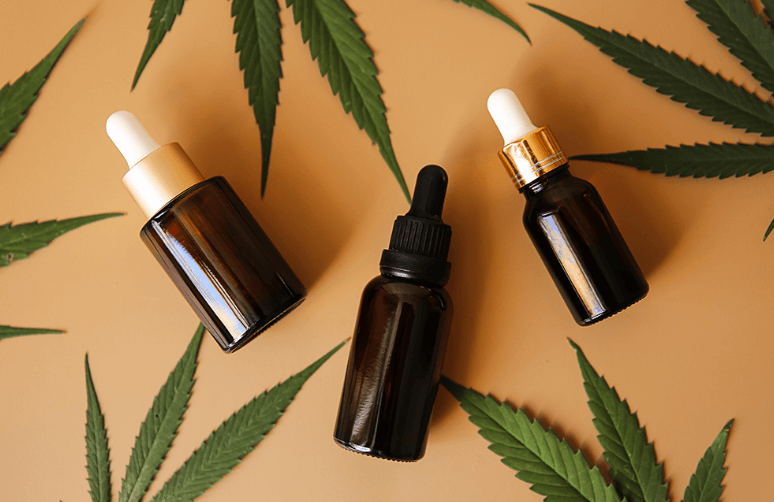The combination of CBD and Tylenol presents a compelling yet complex topic, particularly in the context of pain management. Both substances are metabolized by the liver, raising potential concerns regarding their concurrent use. While some anecdotal evidence suggests that their combined effects may enhance pain relief, the implications for liver health cannot be overlooked. As we explore this intersection, it becomes critical to consider individual responses and the importance of professional guidance. What does the current research indicate about safety and efficacy in this combination?
Understanding CBD and Its Effects
Cannabidiol (CBD) is a non-psychoactive compound derived from the cannabis plant, known for its potential therapeutic effects on pain, anxiety, and inflammation.
While many tout the CBD benefits, misconceptions persist regarding its efficacy and safety.
Understanding these aspects is crucial for individuals seeking alternative remedies, as informed choices can empower users to explore CBD’s potential while navigating the landscape of cannabis-related products.
See also: Can I Travel With Cbd Internationally
Overview of Tylenol
Tylenol, commonly known by its generic name acetaminophen, is an analgesic and antipyretic medication used to relieve pain and reduce fever.
It is important to understand the recommended dosages to avoid potential toxicity, as well as the possible side effects associated with its use.
A comprehensive overview of these aspects is crucial for safe and effective use of Tylenol.
Active Ingredient Details
Acetaminophen, the active ingredient in Tylenol, is widely recognized for its effectiveness in reducing fever and alleviating mild to moderate pain.
This compound works by inhibiting specific enzymes involved in pain and fever responses.
Understanding ingredient interactions is crucial, as combining acetaminophen with other substances may affect its efficacy or safety, highlighting the importance of informed decision-making when considering pain management options.
Dosage Recommendations
Understanding the appropriate dosage of Tylenol is vital for maximizing its therapeutic benefits while minimizing the risk of potential side effects.
Generally, the recommended dosage for adults is 500-1000 mg every 4-6 hours, not exceeding 3000 mg per day.
Consideration of CBD interactions is essential, as they may affect Tylenol’s metabolism.
Always adhere to Tylenol precautions to ensure safe usage.
Side Effects Considerations
Several potential side effects are associated with Tylenol, ranging from mild gastrointestinal discomfort to more severe risks such as liver damage when taken in excessive doses.
Long-term effects may include an increased risk of liver complications, particularly in individuals with pre-existing conditions or those consuming alcohol.
It is essential to monitor dosage carefully to mitigate these side effects and ensure safe usage.
How CBD Interacts With Medications
Cannabidiol (CBD) can influence the metabolism of various medications, potentially altering their effectiveness and safety profiles.
This occurs due to CBD’s interaction with cytochrome P450 enzymes, which play a crucial role in drug metabolism.
Consequently, individuals using CBD should be aware of possible drug interactions that may arise, necessitating careful monitoring and consultation with healthcare professionals to ensure safe and effective medication management.
Potential Benefits of Combining CBD and Tylenol
Combining CBD and Tylenol may offer enhanced pain relief through a synergistic effect, potentially improving overall efficacy.
Additionally, the anti-inflammatory properties of CBD could complement Tylenol’s analgesic action, addressing a broader range of symptoms.
However, careful consideration of dosage is essential to ensure safety and effectiveness when using these substances together.
Pain Relief Synergy
The potential benefits of mixing CBD with Tylenol may offer enhanced pain relief through complementary mechanisms of action.
With CBD efficacy in modulating pain perception and Tylenol’s role in reducing discomfort, this combination could improve overall pain management strategies.
Individuals seeking alternative solutions may find that integrating these substances provides a more effective approach to alleviating pain while minimizing reliance on traditional pharmaceuticals.
Anti-Inflammatory Properties
Research suggests that the anti-inflammatory properties of CBD may complement Tylenol’s analgesic effects, potentially enhancing overall therapeutic outcomes in pain management.
By targeting inflammation, the combination may provide a multifaceted approach to alleviating pain.
This synergy could be particularly beneficial for individuals seeking alternative methods to traditional pain relief, promoting a holistic view of managing discomfort while prioritizing personal freedom in treatment choices.
Dosage Considerations
Determining an appropriate dosage for the combination of CBD and Tylenol is essential to maximize potential therapeutic benefits while minimizing the risk of adverse effects.
Understanding CBD bioavailability can enhance its effectiveness, while considering Tylenol metabolism is crucial to avoid potential interactions.
Careful dosing may provide synergistic effects, potentially improving pain relief and inflammation management without compromising safety.
Always consult a healthcare professional before combining these substances.
Risks of Mixing CBD and Tylenol
Mixing CBD with Tylenol may pose potential risks, particularly concerning liver health and drug interactions.
Both substances are metabolized by the liver, and combining them could increase the risk of liver toxicity.
Additionally, CBD may alter the effectiveness of Tylenol, complicating treatment outcomes.
Therefore, individuals should prioritize CBD safety and consult healthcare professionals regarding potential Tylenol interactions before combining these substances.
Recommended Dosages for Each
Understanding the recommended dosages for both CBD and Tylenol is essential for safe use.
CBD dosage guidelines typically vary based on individual factors such as body weight and the condition being treated, while Tylenol recommendations are generally based on age and overall health.
Adhering to these guidelines can help maximize benefits and minimize potential risks associated with combining these substances.
CBD Dosage Guidelines
When considering CBD dosage, it is essential to tailor the amount to individual needs, taking into account factors such as weight, metabolism, and the specific condition being addressed.
Various CBD administration methods—such as tinctures, edibles, and topicals—can influence bioavailability factors, affecting how much CBD enters the bloodstream.
Starting with a low dose and gradually increasing is advisable for optimal results.
Tylenol Dosage Recommendations
Tylenol, also known as acetaminophen, is typically dosed based on age and weight, with standard recommendations suggesting 500 to 1000 mg every four to six hours for adults, not exceeding 3000 mg to 4000 mg per day.
Adhering to these guidelines ensures Tylenol safety.
For those seeking Tylenol alternatives, options include ibuprofen and natural pain relievers, but always consult a healthcare provider first.
Personal Experiences and Anecdotes
Many individuals have reported varying experiences when combining CBD and Tylenol, highlighting both positive effects and potential concerns.
Personal stories and user testimonials reveal that while some users experience enhanced pain relief and reduced inflammation, others report side effects such as drowsiness or gastrointestinal discomfort.
These anecdotes underscore the importance of individual responses and the subjective nature of combining these substances.
Consulting Healthcare Professionals
Given the varied personal experiences reported, consulting healthcare professionals is important for individuals considering the combination of CBD and Tylenol to ensure safe and effective use tailored to their specific health needs.
Healthcare advice from qualified experts can help identify potential medication interactions, allowing individuals to make informed decisions while prioritizing their health and well-being in the pursuit of freedom from discomfort.
Legal Considerations for CBD Use
The legal landscape surrounding CBD use varies significantly across jurisdictions, necessitating careful consideration of local laws and regulations before incorporating it into any health regimen.
CBD legality can differ dramatically, with some regions permitting its use while others impose strict limitations.
Individuals must navigate these regulatory challenges to ensure compliance and safeguard their rights, making informed decisions essential for responsible CBD consumption.
Alternative Pain Relief Options
Numerous alternative pain relief options exist, offering varying degrees of efficacy and safety for individuals seeking to manage discomfort without relying solely on traditional medications.
Herbal remedies, such as turmeric and ginger, have shown promise in reducing inflammation, while acupuncture techniques target specific points to alleviate pain.
These methods provide individuals with a sense of autonomy in their pain management journey, promoting holistic well-being.
Conclusion
The interplay between CBD and Tylenol presents a complex landscape for pain management, akin to navigating a double-edged sword.
While potential benefits exist, the shadows of liver health risks loom large.
Therefore, engaging with healthcare professionals serves as a compass in this intricate journey, guiding individuals toward safe and effective strategies.
Ultimately, understanding the nuanced relationship between these substances is essential for fostering informed decisions in the pursuit of relief without jeopardizing overall well-being.





